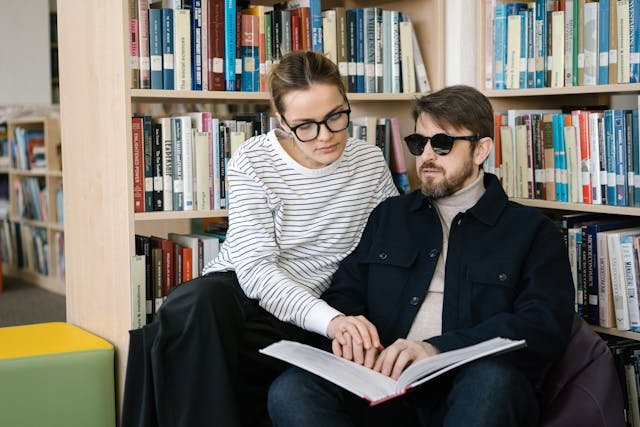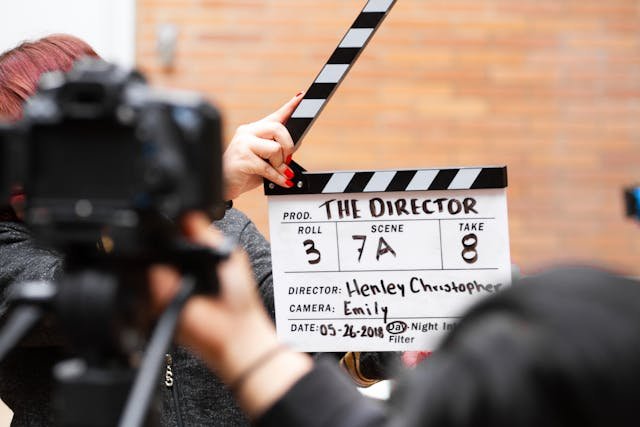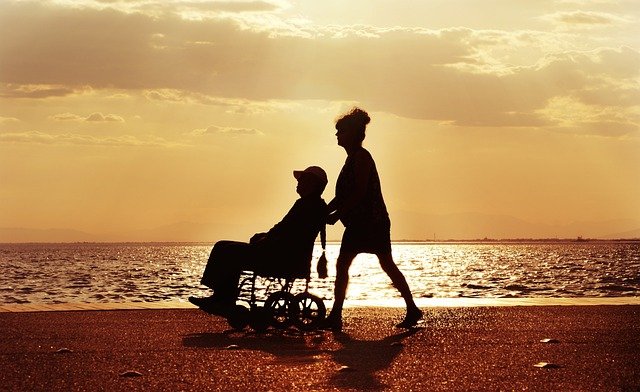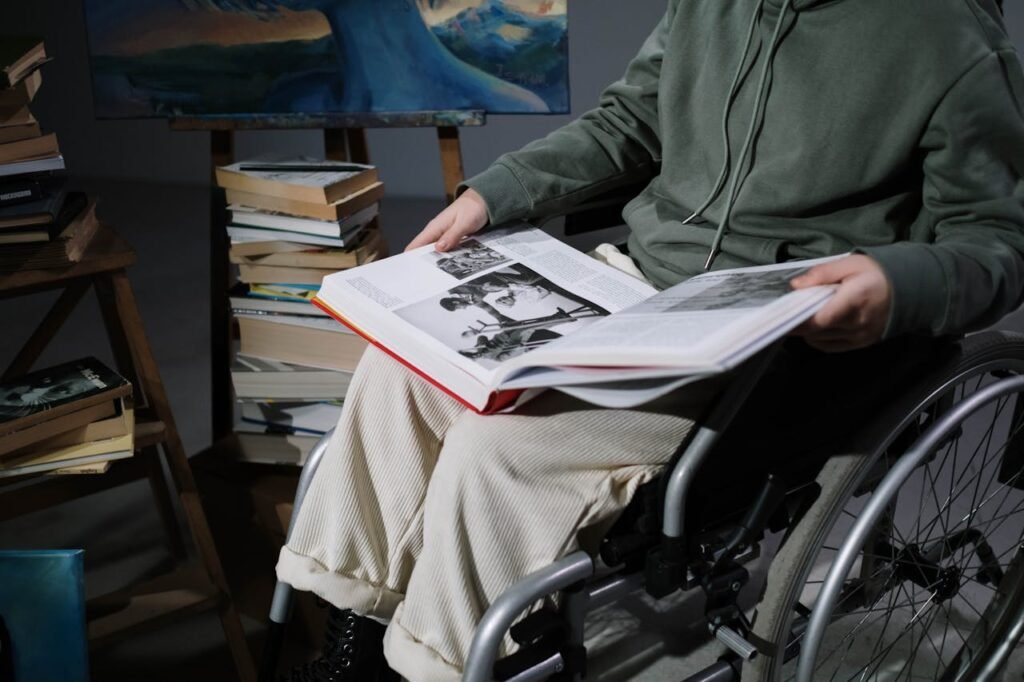Literature and cinema have long been powerful mediums for exploring the human experience. When stories about disability and prosthetics transition from page to screen, they offer profound insights into resilience, identity, and the complexities of life. This article delves into notable works that have made this journey, highlighting their narratives and the impact they’ve had on audiences.
1. “The Reason I Jump”
“The Reason I Jump” is an autobiographical account by Naoki Higashida, a Japanese teenager with autism. Written when he was just thirteen, the book provides an intimate look into the mind of a non-verbal autistic individual, answering questions about his experiences and perceptions.
Transition to Film
The book was adapted into a documentary directed by Jerry Rothwell. The film goes beyond Higashida’s narrative, intertwining the experiences of other non-verbal autistic individuals from around the world. Through immersive visuals and soundscapes, the documentary seeks to convey the sensory experiences of autism, offering viewers a deeper understanding of the condition.
Impact and Reception
Both the book and its film adaptation have been lauded for challenging misconceptions about autism. They emphasize the importance of empathy and the need to listen to voices that are often unheard. By providing a platform for autistic individuals to share their stories, these works have contributed to a broader conversation about neurodiversity and inclusion.
2. “Skallagrigg”

Written by William Horwood, “Skallagrigg” is a novel that weaves together the lives of two characters with cerebral palsy: Arthur, abandoned in a grim hospital in 1921, and Esther, a keenly intelligent teenager in a more enlightened age. The narrative explores their struggles, hopes, and the mythical figure of the Skallagrigg, a symbol of hope within the disabled community.
Screen Adaptation
The BBC adapted “Skallagrigg” into a television film in 1994. While the adaptation condensed the novel’s intricate plot, it retained the core themes of resilience and the quest for identity. The film brought attention to the historical mistreatment of individuals with disabilities and highlighted the importance of understanding and compassion.
Cultural Significance
“Skallagrigg” stands out for its authentic portrayal of cerebral palsy and its critique of societal attitudes towards disability. Both the novel and the film have been praised for shedding light on the inner lives of individuals with disabilities, challenging audiences to reflect on their own perceptions and biases.
3. “The Revised Fundamentals of Caregiving”
Jonathan Evison’s novel, “The Revised Fundamentals of Caregiving,” tells the story of Ben Benjamin, a man who becomes the caregiver for Trevor, a teenager with Duchenne muscular dystrophy. The narrative follows their road trip across the American Midwest, exploring themes of loss, redemption, and the unexpected bonds that form through shared adversity.
Film Adaptation
The novel was adapted into the film “The Fundamentals of Caring,” starring Paul Rudd and Craig Roberts. The film captures the humor and heart of the original story, focusing on the evolving friendship between Ben and Trevor. Through their journey, the film addresses the challenges of living with a disability and the healing power of human connection.
Audience Reception
Both the book and the film have been appreciated for their candid depiction of disability, avoiding clichés and presenting characters with depth and authenticity. They highlight the importance of seeing individuals beyond their disabilities, emphasizing shared humanity and the universal desire for connection and purpose.
4. “Wide-Eyed and Legless”

Based on Deric Longden’s book “Diana’s Story,” “Wide-Eyed and Legless” is a British drama that portrays the life of Longden’s wife, Diana, who developed a degenerative illness. The narrative delves into the challenges faced by the couple, capturing their love, resilience, and the complexities of caregiving.
Television Adaptation
The BBC adapted the book into a television film, starring Julie Walters and Jim Broadbent. The adaptation sensitively portrays the emotional and physical toll of chronic illness on both the individual and their loved ones. It sheds light on the often-overlooked experiences of caregivers and the profound impact of illness on relationships.
Emotional Resonance
“Wide-Eyed and Legless” resonates with audiences for its honest depiction of love and commitment in the face of adversity. It emphasizes the significance of empathy, understanding, and the enduring human spirit when confronted with life’s unpredictable challenges.
5. “Out of My Mind”
“Out of My Mind” is a novel by Sharon Draper that centers on Melody, a brilliant girl with cerebral palsy who cannot speak or walk. The story provides a poignant insight into her world, highlighting her intelligence, frustrations, and determination to be heard.
Disney’s Adaptation
Disney adapted the novel into a film, bringing Melody’s story to a broader audience. The adaptation emphasizes themes of inclusion, accessibility, and the challenges faced by individuals with disabilities in a world that often overlooks their potential.
Impact on Families
The film has been praised for its relatable portrayal of disability, resonating with both families of children with disabilities and those without. It underscores the importance of advocating for inclusion and understanding, encouraging viewers to reflect on their own perceptions and the value of empathy.
6. “Compensation”

“Compensation” is a unique literary and cinematic work that explores the experiences of the Deaf community through a dual narrative spanning two different time periods. Written and directed by Zeinabu irene Davis, this story delves into the challenges faced by Deaf individuals in a society that often fails to accommodate their needs.
Film Adaptation and Storytelling Approach
The film adaptation of “Compensation” uses silent film techniques combined with sign language and visual storytelling to effectively communicate the emotions and experiences of its Deaf protagonists. By doing so, it immerses audiences in the world of Deaf culture, offering a rare and authentic perspective on the challenges and triumphs of navigating life with hearing loss.
Cultural and Social Impact
“Compensation” is significant because it goes beyond portraying disability as an obstacle—it presents it as a lived experience that shapes identity and relationships. By offering Deaf individuals meaningful representation, the book and film encourage deeper discussions about accessibility, sign language recognition, and the importance of inclusive storytelling in mainstream media.
What These Stories Teach Us About Disability and Representation
Books and films that explore disability and prosthetics do more than just tell compelling stories—they help reshape societal perceptions. Each of the books-turned-films discussed above contributes to normalizing disability in popular media and challenges outdated narratives. But their impact extends far beyond entertainment.
Encouraging Authentic Disability Representation in Media

Many of these adaptations have been praised for casting disabled actors or consulting disability advocates to ensure accuracy. However, there is still work to be done. More filmmakers and studios should:
- Cast disabled actors in disabled roles rather than hiring able-bodied performers.
- Consult with disability experts to ensure accurate and respectful portrayals.
- Give disabled creators opportunities to tell their own stories as writers, directors, and producers.
By prioritizing authentic representation, the entertainment industry can ensure that disabled individuals see themselves accurately reflected on screen.
Promoting More Nuanced Disability Narratives
Many early portrayals of disability in literature and film focused on overcoming adversity, reinforcing the idea that a disabled person’s story must be about their challenges. While perseverance is an important theme, the best disability-related books and films today go beyond this by:
- Highlighting everyday experiences rather than just struggles.
- Presenting disabled characters as multi-dimensional individuals with interests, flaws, and ambitions.
- Focusing on accessibility and inclusion rather than just personal perseverance.
When disability representation shifts from stories of overcoming to stories of belonging, it fosters a more inclusive society.
Expanding Disability Representation Across Genres
While many of the books-turned-films in this article fall under drama or biographical storytelling, disability should not be limited to a single genre. Moving forward, it is important to see:
- Disabled protagonists in action films, thrillers, and science fiction.
- Romantic storylines where disability is part of the character’s life but not their entire identity.
- Comedies that feature disabled characters in ways that celebrate their humor and personality without making fun of their condition.
True inclusion means seeing disability in all types of storytelling rather than just as an inspirational subplot.
The Future of Disability and Prosthetic Representation in Film Adaptations

The growing presence of disability and prosthetic-related stories in both literature and film signals a shift toward greater inclusivity in media. However, there is still much work to be done to ensure that these stories continue to accurately, respectfully, and meaningfully represent the disabled community.
As more books featuring disability themes are adapted for the screen, the industry must move beyond token representation and focus on authentic storytelling that reflects real-life experiences.
Supporting Disabled Writers and Filmmakers
While many books about disability have been successfully adapted into films, the majority of these stories are still being written, directed, and produced by non-disabled individuals. True inclusivity in film adaptations requires giving disabled storytellers a seat at the table.
- Encouraging more disabled authors to publish stories about their experiences will ensure that disability narratives are not limited to external perspectives.
- Providing funding and opportunities for disabled filmmakers will allow them to tell their own stories, leading to more authentic and nuanced portrayals.
- Hiring disabled screenwriters and consultants for adaptations will help ensure that films avoid harmful stereotypes and accurately depict the realities of disability.
When disabled creators have the chance to tell their own stories, it results in more meaningful, relatable, and impactful representations of disability on screen.
Expanding Disability Representation Beyond Inspirational Stories
Many of the books that have been adapted into films focus on overcoming adversity, which—while inspiring—can sometimes limit the scope of disability representation. There is a growing need for stories that showcase disabled individuals in all aspects of life, rather than just framing their narratives around struggle.
- Portraying disabled characters in everyday situations—falling in love, pursuing careers, traveling, or simply navigating daily life—can help normalize disability in media.
- Creating films that explore disability in diverse genres—such as fantasy, science fiction, and comedy—will help expand representation beyond dramatic biographical stories.
- Avoiding the “inspiration porn” trope, which portrays disabled individuals as “brave” or “extraordinary” simply for existing, and instead focusing on their complexity, personality, and ambitions.
By shifting the narrative, filmmakers can help change societal perceptions of disability and encourage audiences to see disabled individuals as equals rather than exceptions.
Making Disability Films More Accessible to Disabled Audiences
One of the biggest oversights in disability-related film adaptations is that many of them are not fully accessible to disabled audiences. This issue needs to be addressed to ensure that the very people these films represent are able to enjoy them.
- Adding audio descriptions for blind and visually impaired viewers so they can fully experience the storytelling.
- Providing accurate subtitles and sign language interpretation for deaf and hard-of-hearing audiences.
- Ensuring streaming platforms and cinema spaces are accessible so that disabled audiences can watch films without barriers.
By prioritizing accessibility, filmmakers and production companies can demonstrate that inclusivity is more than just representation—it’s about real engagement.
The Cultural Impact of Disability and Prosthetic Stories in Film

The adaptation of disability-focused books into films does more than just bring these stories to a larger audience—it helps shift cultural perspectives, influence policies, and create a more inclusive world.
Challenging Society’s Perceptions of Disability
For decades, mainstream media has often portrayed disability in a negative or limiting way. However, well-executed film adaptations have the power to challenge these misconceptions and reshape public understanding.
- Films based on true stories highlight the real struggles and triumphs of disabled individuals, helping to dispel myths and misinformation.
- Stories that normalize disability encourage viewers to see disabled people as active, independent, and capable members of society.
- Positive portrayals can inspire changes in education, employment, and accessibility policies by increasing awareness and advocacy.
By continuing to tell diverse and authentic disability stories, films can help create a culture that values inclusion and equal opportunity.
Encouraging More Disability Representation in Education
Many of the books and films mentioned in this article have become valuable educational tools. Schools, universities, and organizations are now using these stories to teach students and employees about disability awareness, empathy, and inclusion.
- Incorporating disability-related books into school curriculums helps young people understand and respect differences from an early age.
- Screening films with disability representation in workplaces can foster discussions about accessibility, inclusivity, and equal rights.
- Hosting panels and discussions featuring disabled speakers and creators can deepen understanding and lead to meaningful change.
When literature and film are used as educational resources, they contribute to long-term shifts in societal attitudes toward disability.
Inspiring Future Generations of Disabled Creators
Seeing disability represented authentically and positively in books and films can inspire young disabled individuals to pursue careers in storytelling, whether as writers, filmmakers, actors, or directors.
- When disabled children see characters like themselves in books and movies, it reinforces the idea that their stories matter and deserve to be told.
- As more disabled creators enter the entertainment industry, the quality and quantity of disability representation will continue to improve.
- Increased visibility of disabled professionals in media helps break barriers and encourage equal opportunities for future generations.
The more we see disabled voices shaping their own narratives, the stronger the impact will be on representation, accessibility, and societal inclusion.
Final Thoughts: Why These Stories Matter
The best disability and prosthetic-related books turned into films are those that go beyond simplified portrayals to offer meaningful, respectful, and authentic representation. These stories challenge stereotypes, educate audiences, and encourage greater inclusivity in both media and real life.
At Robobionics, we believe that representation matters because visibility leads to acceptance, and acceptance leads to change. The more we see diverse portrayals of disability in books and films, the more we break down societal barriers.
The future of disability storytelling is bright, and with continued efforts to cast, create, and promote inclusive stories, we can ensure that disabled voices are heard, celebrated, and given the recognition they deserve.



